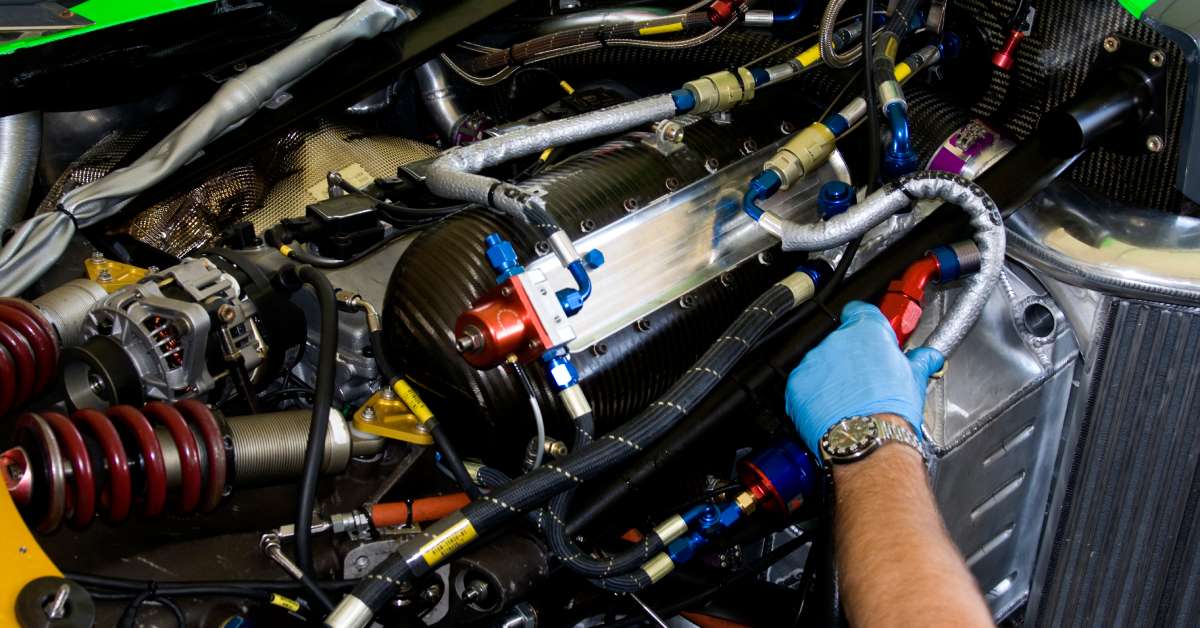Tips for Choosing the Best Racing Oil for Your Engine

The right engine oil for a racing car typically comes down to engine requirements, but other factors often affect your purchase. The smart thing any race car driver or engineer could do is select the best racing oil for both performance and longevity. Here are ten tips for choosing the best racing oil for your engine.
1. Understand Your Engine's Requirements

Every engine is unique. Start by understanding your engine’s needs, including what the manufacturer would recommend and the racing you will partake in. High-performance motors have different demands than street engines, so always tailor your oil choice to these requirements.
Viscosity Grade
Ensure the oil matches the recommended viscosity grade, which affects how the oil flows at different temperatures.
Additive Package
Look for additives that enhance wear protection, anti-foaming, and oxidation stability. These chemicals assist in protecting the motor from breaking down long-term.
Detergent Levels
Determine what the detergent levels should be for your engine. A high-detergency oil keeps the engine clean but doesn’t always suit high-performance applications.
Zinc and Phosphorus Content
High-performance engines often require elevated levels of these elements (ZDDP) to protect against high-pressure wear.
Oil Change Interval
Some oil formulas only provide maximum protection during races for a short time, so ensure you understand the expected oil change intervals to avoid breaking down on the race track.
Compatibility With Fuel Type
Ensure that the oil is compatible with your engine's fuel, as some oils may not be compatible with your fuel type, such as ethanol blends or lead racing fuels.
2. Focus on Viscosity
Viscosity is a vital characteristic of any oil, influencing its flow and protection capabilities. Racing oils come in various viscosities, such as 0W-20, 5W-30, and 10W-40. Choose a viscosity that aligns with your engine's operating temperature and the racing style. Higher viscosities provide better protection at higher temperatures, while lower viscosities can reduce friction and improve fuel efficiency.
3. Look for Racing-Specific Formulations
Standard motor oils are unsuitable for high-performance engines due to their limited protective properties under extreme conditions. Instead, opt for oils that are specifically for racing. These specialized oils contain higher levels of anti-wear additives, such as zinc, phosphorus, and sulfur, which are essential for protecting engine components during high-stress situations. A thorough evaluation of your engine's needs will help you find the right oil for optimal performance and longevity.
Brief Overview of Engine Needs and Additives To Avoid
Here are the elements of racing oil your engine will benefit from and the additives that could harm it.
Engine Needs
When selecting racing oil, focus on the following essentials:
- Viscosity: It protects the vehicle at higher temperatures.
- Additives: They provide anti-wear protection.
- Compatibility: This verifies how well engine oil fares with the fuel type.
Additives To Avoid
Certain additives, while beneficial for street engines, can be detrimental in racing conditions.
- Detergents: These are great for keeping the engine clean but can reduce the effectiveness of anti-wear additives.
- Friction modifiers: These alter traction properties and aren’t necessary in racing scenarios.
- Energy-conserving additives: These improve fuel efficiency but potentially compromise high-load protection for racing engines.
4. Check for Anti-Foaming Properties
Racing engines operate at high speeds, which can cause oil to foam. Foaming reduces the oil’s ability to lubricate effectively. Select oils with anti-foaming properties to ensure the engine remains lubricated and protected during intense moments on the race track.
Identify Essential Anti-Foaming Properties
When selecting a racing oil, ensure it possesses the following anti-foaming properties.
- Silicone-based additives: These reduce surface tension when breaking foam rapidly.
- Polymer-based stabilizers: These enhance the oil's stability, preventing foam bubbles from forming.
- Effective viscosity control: This prevents the formation of foaming in stressful conditions.
- High oxidation resistance: This maintains the oil's integrity and reduces foaming incidents.
- Enhanced air release agents: These instantaneously release trapped air so that the oil keeps flowing.
5. Evaluate Additive Packages
Additives enhance oil performance by providing extra protection and improving various properties. They grant the extra oomph your vehicle needs when tailing down others on the race track. Your chosen racing oil should include detergents and dispersants in its additive package. These additives help keep your engine clean and prevent wear and tear.
6. Pay Attention to Wear Protection

Wear protection is critical for maintaining engine integrity. Look for oils emphasizing wear protection, particularly for high-stress areas, such as camshafts and valve trains. Higher levels of zinc and phosphorus are essential because these elements form a protective film on metal surfaces, reducing friction and preventing wear.
7. Check Compatibility With Engine Components
When picking out an engine oil, ensure the chosen one matches your engine components. Certain oils may not be suitable for specific materials in engine parts. It's crucial to consult the oil manufacturer or your engine builder to confirm compatibility. For instance, some synthetic oils might not perform well with older engine seals, potentially leading to leaks. So you may need to look into and rely on other oils that nurture your engine instead of breaking it down.
Additionally, high-zinc oils could be necessary for flat-tappet camshafts but might harm catalytic converters. Checking compatibility ensures that the oil will provide optimal performance without causing damage.
8. Analyze the Oil’s Thermal Stability
Thermal stability refers to the oil’s capability to maintain its properties under extreme heat. Racing engines generate immense heat and oils with high thermal stability, which assist in preventing breakdowns and offering continued protection.
9. Prioritize Oil Change Intervals
Prioritizing oil change intervals ensures the engine continues to perform above expectations longer. Establishing and adhering to a strict oil change schedule ensures that the oil safeguards the engine. Consult the oil manufacturer’s guidelines and your engine builder’s recommendations to determine the ideal change intervals for your specific racing conditions.
10. Trust Proven Brands
Our last point is to look for trusted brands with proven records in racing. Oils with proven records continue to meet the rigorous demands of racing, ensuring each engine keeps roaring as it speeds down the track.
Finish Your Race in First Place
Choosing the best racing oil for your engine involves several factors. Each element of engine oil keeps it performing at its best, from viscosity to additive packages. Any professional racer can agree that the correct oil makes the difference between finishing first and just completing the race.
Don't Settle for Less in Your Next Race
When considering your next purchase of race engine oil, choose Driven Racing Oil. Our commitment to offering top-tier oil products fuels our mission to be the industry's leading race car oil manufacturer.
Ready to secure first place in your next race? Start with Driven Racing Oil today, and discover the difference that premium engine oil can make.

You must login to post comments.